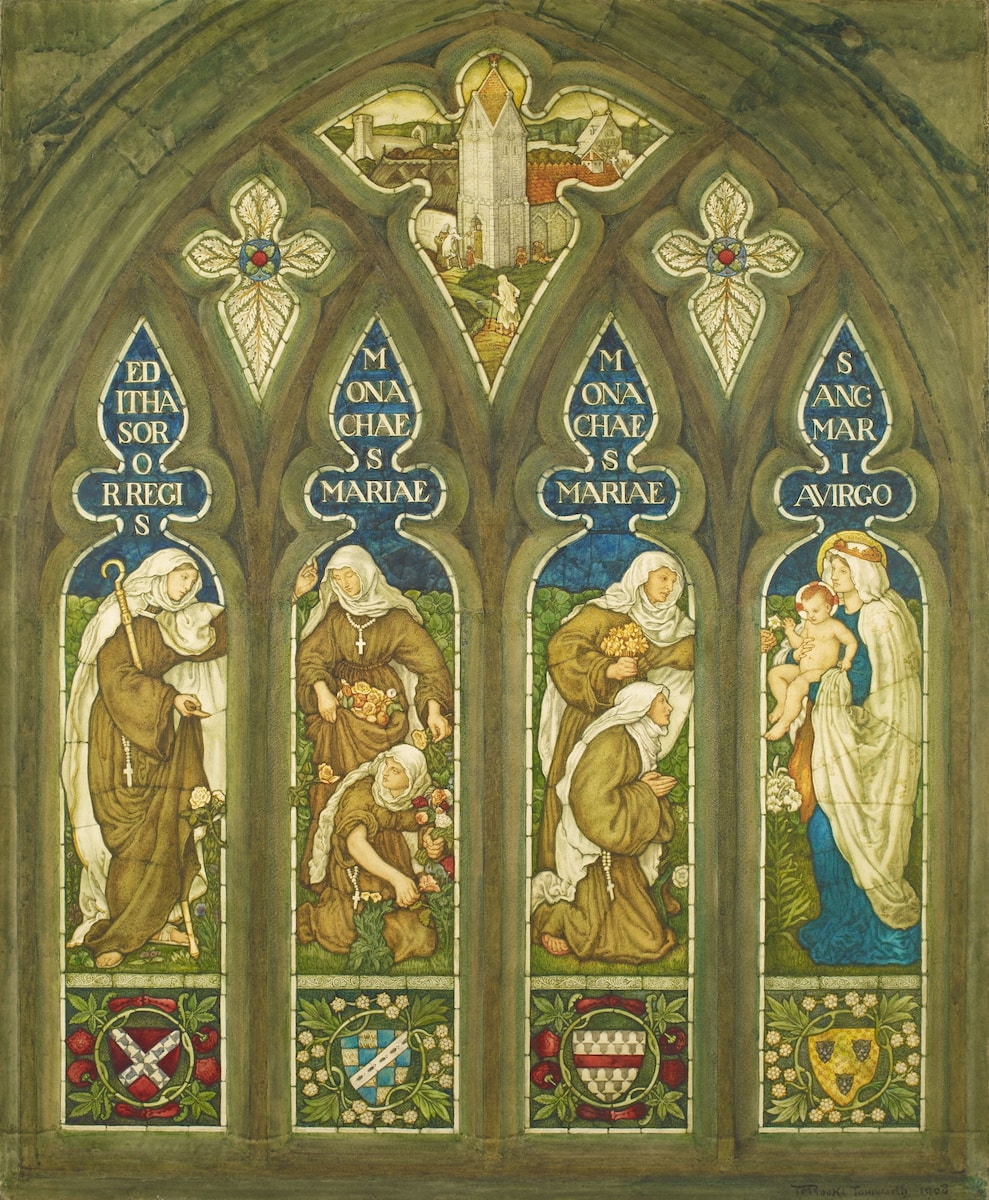This article provides an overview and analysis of Jeremiah 11 in biblical prophecy, exploring the themes of covenant warning, betrayal condemnation, and Jesus covenant renewal.

Photo by Igor Rodrigues on Unsplash | Commercial use allowed
Overview of Jeremiah 11 in Biblical Prophecy
Jeremiah 11 occupies a significant place in biblical prophecy, particularly in elucidating the themes of covenant warnings and renewal. The chapter plays a pivotal role in conveying the profound implications of the covenant warning, betrayal condemnation, and Jesus’ covenant renewal within the broader context of biblical prophecy. This exploration offers a deep understanding of the spiritual and historical implications that resonate throughout the biblical narrative.
The covenant warning in Jeremiah 11 serves as a poignant reminder of the consequences of persistently breaking God’s covenant. This theme is of utmost significance, as it showcases the divine response to the unyielding rebellion and disobedience of the people of Judah and Jerusalem. The implications of this warning are far-reaching, shedding light on the inescapable disaster that ensues from stubbornly defying the covenant with God. For instance, the persistent covenant breaking invoked God’s curse that brought inescapable disaster, underscoring the severity of the situation.
#Jeremiah11 #CovenantWarning #BetrayalCondemnation #JesusCovenantRenewal #Faithfulness #ConsequencesofBetrayal #RenewalofCovenant #GodsPromise #CovenantRelationship #Unfaithfulness #Restoration #DivineCommitment #CovenantalFaith #HonoringCommitments #SpiritualCommitment #BreakingPromises #ReturningtoGod #CovenantFaithfulness #GodsFaithfulness #TrustworthyRelationship
Furthermore, the betrayal condemnation in Jeremiah 11 underscores the gravity of the situation, emphasizing the profound disappointment experienced by God due to the rejection of His love and endearment by the people of Judah and Jerusalem. This condemnation is intertwined with the historical context of Judah and Jerusalem during Jeremiah’s time, providing insights into the prevailing conditions that led to the severe rebuke for wickedness, idolatry, and conspiracy. These elements underscore the intricate connection between the covenant warning, betrayal condemnation, and the subsequent events that unfold, presenting a rich tapestry of divine admonition and human response within the framework of biblical prophecy.
Jeremiah 11 also introduces the concept of Jesus’ covenant renewal, which reflects the enduring nature of God’s covenant and His redemptive plan for humanity. The connection between the covenant warning in Jeremiah 11 and Jesus’ covenant renewal is profoundly significant, highlighting the continuity and enduring significance of the covenant theme throughout the biblical narrative, showcasing the unchanging nature of God’s redemptive plan for His people. Additionally, the promise of a New and Eternal Covenant referenced in Galatians 3:10-14 serves as a pivotal link between the covenant warning in Jeremiah 11 and Jesus’ covenant renewal, emphasizing the timeless nature of the covenant and its enduring impact on the spiritual and historical trajectory of the faithful.
Understanding the Covenant Warning and Betrayal Condemnation
Jeremiah 11 carries profound significance in biblical prophecy as it unveils the covenant warning and betrayal condemnation, which are deeply intertwined with the spiritual and moral fabric of the narrative. The covenant warning articulated in this chapter serves as a poignant reminder of the implications of persistent covenant breaking and the resulting consequences. This solemn warning reflects God’s unwavering commitment to His covenant with His people and the inevitable repercussions of forsaking it. One striking example of this is the comparison made in Jeremiah 11 between the people’s persistent rebellion and the inescapable disaster that invokes God’s curse, signifying the severity of the situation.
In addition to the covenant warning, the betrayal condemnation within Jeremiah 11 underscores the gravity of the warnings given to Judah and Jerusalem, highlighting the dire ramifications of their actions. The chapter serves as a stark portrayal of the people’s departure from the covenant and the subsequent divine response. It illuminates the solemnity of the covenant and the weight of accountability when it is disregarded. For instance, the chapter emphasizes the significance of persistently breaking God’s covenant, leading to the divine pronouncement of inescapable disaster, thus revealing the serious consequences that accompany the breach of the covenant. Therefore, the covenant warning and the betrayal condemnation in Jeremiah 11 are pivotal in demonstrating the intricate relationship between God’s covenant, human responsibility, and divine justice.
Moreover, the historical context of Judah and Jerusalem during the time of Jeremiah offers valuable insights into the prevailing conditions that led to the severe rebuke for wickedness, idolatry, and conspiracy. The conspiracy among the people of Judah and Jerusalem, as highlighted in the biblical accounts, reflects the extent of their deviation from the covenant and the severity of the consequences they would face as a result. This historical context underscores the significance of the covenant warning and the subsequent divine response, shedding light on the profound impact of the people’s actions in relation to their covenant relationship with God.
Historical Context of Judah and Jerusalem
During the time of Jeremiah, Judah and Jerusalem were facing a turbulent historical context, characterized by political instability and spiritual waywardness. Following the death of King Josiah, the people of Judah and Jerusalem turned away from the reforms that he had instituted, and they returned to their evil and idolatrous ways. This shift in the religious and moral landscape of the nation set the stage for the events that unfolded during Jeremiah’s prophetic ministry.
The prevailing conditions of the era reveal a society deeply entrenched in disobedience and rebellion against God’s covenant. The conspiracy among the people of Judah and Jerusalem, as highlighted in the biblical accounts, reflects the extent of their deviation from the covenant and the severity of the consequences they would face as a result. This historical context underscores the significance of the covenant warning and the subsequent divine response, shedding light on the profound impact of the people’s actions in relation to their covenant relationship with God.
The historical context of Judah and Jerusalem during the time of Jeremiah offers valuable insights into the prevailing conditions that led to the severe rebuke for wickedness, idolatry, and conspiracy. The conspiracy among the people of Judah and Jerusalem, as highlighted in the biblical accounts, reflects the extent of their deviation from the covenant and the severity of the consequences they would face as a result. This historical context underscores the significance of the covenant warning and the subsequent divine response, shedding light on the profound impact of the people’s actions in relation to their covenant relationship with God.
 Jeremiah’s Anguish and Yahweh’s Lament
Jeremiah’s Anguish and Yahweh’s Lament
Jeremiah’s emotional turmoil and anguish over his people’s wickedness are deeply rooted in his prophetic calling and personal experiences. His confessions and oracles in Jeremiah 11 depict a soul in distress, torn between loyalty to God and witnessing the unfaithfulness of his people. For instance, in Jeremiah 11:18-20, the prophet expresses his anguish and vulnerability, crying out to the Lord for justice and vengeance against those who sought his life. This genuine display of emotion showcases the internal struggle of a prophet who deeply cares for his people but is devastated by their unrepentant ways.
Moreover, Yahweh’s lament over the destruction of His inheritance in Jeremiah 12:7-13 reveals the divine heartache caused by the persistent rebellion and covenant-breaking of the people. The imagery of a once-beloved vineyard that has been trampled and laid waste serves as a poignant metaphor for the desolation and devastation experienced by God’s chosen nation. This lamentation underscores the gravity of the consequences that the people of Judah and Jerusalem are about to face due to their unrelenting transgressions. The emotional depth of Yahweh’s lament reflects the profound impact of the covenant betrayal on the divine-human relationship, highlighting the relational dynamics and the emotive response of the Almighty to His people’s waywardness.
The oracles in Jeremiah 11 move from present time to the past of the Exodus generation and then back to Jeremiah’s time. This shifting temporal perspective adds a layer of complexity to the prophetic message, emphasizing the continuity of God’s covenant and the timeless consequences of human disobedience.
Connection between the Covenant Warning and Jesus’ Covenant Renewal
The connection between the covenant warning in Jeremiah 11 and Jesus’ covenant renewal is profoundly significant in the context of biblical prophecy. The covenant warning in Jeremiah 11, which emphasizes the persistent breaking of God’s covenant and the resulting inescapable disaster, serves as a poignant precursor to Jesus’ covenant renewal. This connection highlights the continuity and enduring significance of the covenant theme throughout the biblical narrative, showcasing the unchanging nature of God’s redemptive plan for His people.
Furthermore, the promise of a New and Eternal Covenant referenced in Galatians 3:10-14 serves as a pivotal link between the covenant warning in Jeremiah 11 and Jesus’ covenant renewal. This promise underscores the timeless nature of the covenant, emphasizing its enduring impact on the spiritual and historical trajectory of the faithful. In the New Testament, Jesus, through His sacrificial death and resurrection, establishes a new covenant, fulfilling the prophecies and promises of the Old Testament, including those articulated in Jeremiah 11. This renewal and fulfillment of the covenant embody the unyielding and redemptive love of God for His people, demonstrating His unwavering commitment to reconcile and restore humanity to Himself.
The promise of a New and Eternal Covenant referenced in Galatians 3:10-14 serves as a pivotal link between the covenant warning in Jeremiah 11 and Jesus’ covenant renewal. This promise underscores the timeless nature of the covenant, emphasizing its enduring impact on the spiritual and historical trajectory of the faithful. In the New Testament, Jesus, through His sacrificial death and resurrection, establishes a new covenant, fulfilling the prophecies and promises of the Old Testament, including those articulated in Jeremiah 11. This renewal and fulfillment of the covenant embody the unyielding and redemptive love of God for His people, demonstrating His unwavering commitment to reconcile and restore humanity to Himself.
 Theological Implications and Biblical Prophecy
Theological Implications and Biblical Prophecy
The covenant warning and betrayal condemnation in Jeremiah 11 hold profound theological implications that offer valuable insights into the spiritual and moral facets of the covenant relationship between God and His people. By persistently breaking the covenant, the people of Judah and Jerusalem invoked God’s curse, leading to inescapable disaster. This serves as a poignant reminder of the repercussions of disobedience and the enduring significance of upholding the covenant with God, reflecting the moral responsibility and consequences associated with covenant fidelity.
Furthermore, the prophetic nature of the covenant warnings and renewals in Jeremiah 11 highlights the timeless relevance of biblical prophecy in illuminating the divine messages conveyed through the prophets. The warnings given to Judah and Jerusalem, coupled with the scathing rebuke for wickedness, idolatry, and conspiracy, serve as prophetic declarations that transcend the historical context, offering profound insights into the enduring nature of God’s covenant and His unwavering expectations of faithfulness from His people. Through the lens of biblical prophecy, the covenant theme in Jeremiah 11 emerges as a testament to God’s unchanging nature and His continuous engagement with humanity, echoing throughout the ages as a divine call to covenant faithfulness and obedience.
The theological implications of the covenant themes in Jeremiah 11 also extend to the broader theological framework of the Old and New Testaments. The covenant warnings and condemnations, along with the eventual promise of Jesus’ covenant renewal, reflect the overarching narrative of God’s redemptive plan for humanity. This theological framework underscores the moral and spiritual dimensions of human conduct and the divine response to human choices. It serves as a testament to the enduring relevance of the covenant themes in shaping the theological understanding of believers and providing a framework for interpreting the divine-human relationship.
Consequences of Persistently Breaking God’s Covenant
The repercussions of persistently breaking God’s covenant, as depicted in Jeremiah 11, serve as a solemn warning about the dire consequences that accompany disobedience. The chapter outlines the inevitable calamity and retribution that befall the people of Judah and Jerusalem due to their persistent covenant breaking.
One striking example of the consequences of forsaking the covenant is the silent response to the cries for help from the people of Judah and Jerusalem, who were engulfed in a stubborn conspiracy against God. Despite their pleas, the divine intervention they sought was withheld, emphasizing the severity of the consequences of their actions. This silence speaks volumes about the repercussions of persistently disregarding the covenant and rebelling against God’s commands.
Moreover, the scathing rebuke in Jeremiah 11 underscores the gravity of the situation, as God’s disappointment is expressed through the severe retribution against the opponents of Jeremiah. This illustrates the magnitude of the divine judgment that awaited the people of Judah and Jerusalem as a result of their persistent covenant breaking, emphasizing the inescapable disaster that accompanies such rebellion. The consequences outlined in Jeremiah 11 serve as a poignant reminder of the enduring significance of honoring and upholding the covenant with God, as well as the sobering reality of the repercussions of persistent disobedience.
Symbolism and Object Lessons in Jeremiah
Jeremiah’s use of symbolic elements in his prophecies adds depth and complexity to the message, providing vivid imagery that resonates with the audience. One compelling example is the smashed wine jugs and the vision of the exile described in Jeremiah 13:12-17. This powerful visual imagery serves as a striking metaphor for the consequences of the people’s disobedience and betrayal of the covenant with God. The smashed wine jugs symbolize the destruction and ruin that will befall the people due to their persistent rebellion against God’s commands. The vision of the exile further emphasizes the severity of the impending judgment, depicting the grim reality of the people’s future if they continue to defy the covenant.
Moreover, these symbolic elements also carry historical and spiritual significance, offering a profound insight into the divine relationship with His people. By using tangible symbols and object lessons, Jeremiah effectively communicates the gravity of the situation and the urgency of repentance. The smashed wine jugs and the vision of the exile serve as poignant reminders of the consequences of forsaking the covenant, highlighting the timeless consequences of disobedience and the unwavering justice of God. This approach to prophecy not only captures the attention of the audience but also leaves an indelible impression, fostering a deeper understanding of the covenant themes and their implications for the people of Judah and Jerusalem.
In essence, the symbolism and object lessons in Jeremiah’s prophecies serve as powerful tools for conveying spiritual truths and moral lessons. They evoke strong emotions, provoke contemplation, and compel the audience to reflect on their actions and their relationship with God. Through these visual representations, Jeremiah masterfully underscores the enduring relevance of the covenant themes, urging the people to heed the warnings and embrace repentance in order to avert the impending calamity and retribution.
 God’s Disappointment and Vengeance
God’s Disappointment and Vengeance
Throughout Jeremiah 11, we witness God’s profound disappointment with the people of Judah and Jerusalem as they reject His love and endearment. It is evident that despite God’s continuous guidance and warnings, the people persist in their disobedience, leading to divine displeasure and sorrow. This emotional response from the divine emphasizes the depth of the relationship between God and His people and highlights the significance of human choices in shaping this bond.
Moreover, the promise of vengeance against those who sought to harm Jeremiah serves as a testament to God’s unwavering protection and justice. This divine assurance signifies the divine intervention in human affairs and the accountability of those who act against God’s chosen servants. It also reflects the interconnected nature of human actions and the subsequent divine consequences, underscoring the overarching theme of divine justice and retribution in the context of the covenant.
In Jeremiah, we see a poignant portrayal of God’s emotional investment in His people and His commitment to upholding justice in the face of adversity. This not only offers profound insights into the divine-human relationship but also serves as a powerful reminder of the implications of human choices in relation to divine displeasure and retribution.
 Intrinsic Significance of the Covenant Themes
Intrinsic Significance of the Covenant Themes
The covenant themes in Jeremiah 11 hold a profound significance in biblical prophecy, offering valuable insights into the enduring nature of God’s covenant with His people. The covenant warning, betrayal condemnation, and Jesus’ covenant renewal are not isolated events but rather form an interconnected narrative that spans from the Old Testament to the New Testament. This continuity underscores the timeless relevance of the covenant themes in shaping the spiritual journey of believers and illuminating the divine-human relationship.
For instance, the covenant warning in Jeremiah 11 serves as a poignant reminder of the consequences of persistent disobedience and covenant breaking. This is not merely a historical account but a timeless principle that speaks to the moral and spiritual dimensions of human conduct. It highlights the enduring nature of God’s standards and expectations for His people, emphasizing the need for faithfulness and obedience in the covenant relationship. This enduring significance is further echoed in the New Testament with Jesus’ covenant renewal, which reaffirms God’s unwavering commitment to His people and the redemptive fulfillment of the covenant through Christ.
Furthermore, the intrinsic significance of these covenant themes extends beyond their historical context, shaping the theological understanding of believers and providing a framework for interpreting the divine-human relationship. The covenant narratives in Jeremiah 11 serve as foundational elements that continue to inform the spiritual consciousness of individuals and communities, emphasizing the enduring impact of God’s covenant promises, warnings, and renewals. This enduring significance underscores the profound and transformative nature of the covenant themes, offering timeless guidance for navigating the complexities of faith and spirituality in the contemporary world [3].

 Jeremiah’s Anguish and Yahweh’s Lament
Jeremiah’s Anguish and Yahweh’s Lament Theological Implications and Biblical Prophecy
Theological Implications and Biblical Prophecy God’s Disappointment and Vengeance
God’s Disappointment and Vengeance Intrinsic Significance of the Covenant Themes
Intrinsic Significance of the Covenant Themes

